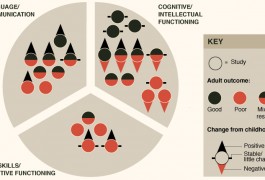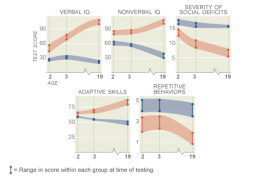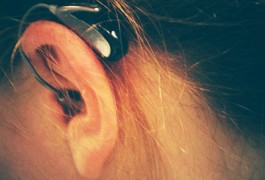Approved autism drug fails to deliver long term for most
Aripiprazole, one of two autism drugs approved by the U.S. Food and Drug Administration to treat autism symptoms, may be no more effective than a placebo after a few months.

Aripiprazole, one of two autism drugs approved by the U.S. Food and Drug Administration to treat autism symptoms, may be no more effective than a placebo after a few months.

Evidence is finally accumulating that early diagnosis and behavioral interventions improve the lives of people with autism. Even so, increasingly the question isn’t just whether early intervention works but also the best age at which to intervene.

The social lives of people with autism remain poor well into adulthood, and they struggle to find the sense of well-being and fulfillment that comes from meeting one’s own goals and expectations, conclude two new reviews of long-term studies in people with the disorder.
What evidence supports the idea that autism stems from overactive brain responses to sensory input? Researchers weigh in on this controversial theory.

The ‘intense world theory’ of autism, which has attracted much interest from the popular press, has received very little academic scrutiny. Uta Frith and Anna Remington ask: Is it as positive as it purports to be, and what does it mean for autism?

Intelligence quotients of toddlers with autism closely predict how they will fare as adults, reports a 17-year study published 9 December in the Journal of Child Psychology and Psychiatry.

Oxytocin, the infamous ‘love hormone,’ may attune the brains of people with autism to respond to social information such as facial expressions, researchers reported 2 December in the Proceedings of the National Academy of Sciences. The study boosts oxytocin’s promise for treating the social deficits seen in autism.

Anxiety runs in families with a history of autism, hinting that the two conditions may share a common origin, suggests a twin study published in November.

It’s common for children with autism to take more than one medication to improve symptoms, despite the dearth of information about the drugs’ long-term safety, according to two new studies.

A wireless radio-frequency listening device helps children with autism hear others talk, which in turn improves their social interactions and learning, reports a study published 30 October in The Journal of Pediatrics.